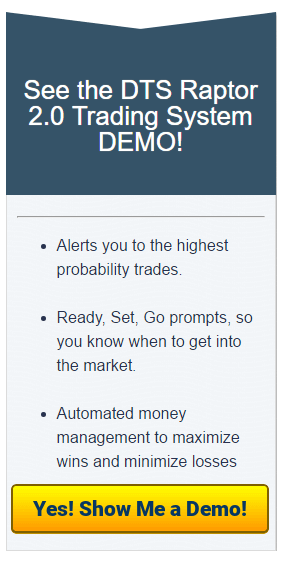Day Trading Tips and Tricks
Essential List of Day Trading Skills
I have received some emails from new traders inquiring as to what day trading skills they should work on to get ahead in trading the futures, forex, and equities markets. The following list is by no means comprehensive, but it is a good place to start if you are new to the game.
Learning our craft is essential to long-term success. The more you know, the more you will be able to do as a trader. Keep in mind the development of these day trading skills takes time. Just as a pilot learns everything they might need to know educationally from reading materials, videos, etc., It takes many hours in a real aircraft before they are allowed to carry other people. The same goes with trading. There are two parts to this equation: The first being the learning of the theory, and the second being the application in the actual market(s). Love your craft, live your work and you will be rewarded much more than those who don’t!

Support and Resistance
This is one of my favorites and arguably the single most important of any of the day trading skills a trader can learn. Correctly placing horizontal support and resistance lines, trend lines and Fibonacci lines can be the difference between a very high accuracy in trading and not understanding why the market is doing what it is doing. Knowing price levels that are likely to garner interest from other traders gives you the correct “structure” in which to trade and is the best place to start in understanding which types of trades you will take. Although it takes time to learn and apply all the day trading skills in this category, it is well worth it.
Patience
This is one of the day trading skills not talked about much in the trading world except by those who make money from trading. Sounds simple enough, but in practice rather difficult. Why? Because we trade because we want to (A) Make money and (B) We love it. So the natural inclination is to trade as frequently as we can, finding more trades if possible. The fact of the matter, though, is that quality trumps quantity when it comes to overall profitability. Learning how NOT to take a trade can make you more money than learning how to take each and every entry. Developing a “sniper”-like attitude is necessary so you will win correctly more often than not, which is a benefit both psychologically and financially. Wait for the “right” moment to trade, rather than just taking trades because you are on the computer. For a little more information on how you get paid not to trade. check out this article.
 This is one of the day trading skills not talked about much in the trading world except by those who make money from trading. Sounds simple enough, but in practice rather difficult. Why? Because we trade because we want to (A) Make money and (B) We love it. So the natural inclination is to trade as frequently as we can, finding more trades if possible. The fact of the matter, though, is that quality trumps quantity when it comes to overall profitability. Learning how NOT to take a trade can make you more money than learning how to take each and every entry. Developing a “sniper”-like attitude is necessary so you will win correctly more often than not, which is a benefit both psychologically and financially. Wait for the “right” moment to trade, rather than just taking trades because you are on the computer. For a little more information on how you get paid not to trade check out this article: Getting Paid To Sit Around.
This is one of the day trading skills not talked about much in the trading world except by those who make money from trading. Sounds simple enough, but in practice rather difficult. Why? Because we trade because we want to (A) Make money and (B) We love it. So the natural inclination is to trade as frequently as we can, finding more trades if possible. The fact of the matter, though, is that quality trumps quantity when it comes to overall profitability. Learning how NOT to take a trade can make you more money than learning how to take each and every entry. Developing a “sniper”-like attitude is necessary so you will win correctly more often than not, which is a benefit both psychologically and financially. Wait for the “right” moment to trade, rather than just taking trades because you are on the computer. For a little more information on how you get paid not to trade check out this article: Getting Paid To Sit Around.
Accountability
All too often, traders blame their failures on virtually everything except themselves. While this might be a psychological coping mechanism designed to deal with the difficulty of being consistently profitable in a highly competitive trading environment, it does not serve the trader in the sense of growing and moving forward. While there are factors which are out of your hands, understanding that the majority of success or failure in trading comes directly down to YOU will enable you to “own” what’s going on rather than being beholden to the system, market, mentor, etc. You are the captain, and rewards are yours only if you take responsibility for the fact that you are in control of your destiny. Don’t confuse this for a reason to be down on yourself for failure, because it is not that at all. I am only saying that by being 100% honest and accountable to yourself, you will more easily see the changes, however, small that need to be made to improve your trading.
Discipline
“Plan the trade, trade the plan” is an excellent motto used all the time in education when it comes to trading, but very few people can pull it off. It sounds so simple! Step one: Create a Plan Step Two: Follow the plan. Number 1 takes considerably less effort than number 2. The reason? We are by nature greedy and fearful in a world that is dynamic and competitive. The problem becomes, though, if we are not consistent in our approach, and we don’t have clearly defined rules, and then we never know if it is “us” that’s winning or losing, or outside influences like the market or the system we are using.
Your Chosen Tools
I can’t say there are only some tools worth using and not others, but whatever you decide to use, LEARN THEM! All too often, we see others using certain tools like indicators or systems profitably, but when we get our hands on them, they don’t seem to work. Scam? Maybe… Probably not. The difference between those who can make money with an individual tool and those who can’t comes down to how well that trader knows their given equipment, the limitations, when and how to use them correctly. Taking time to really understand what you’re using will help you make the best decisions with those tools. Many of our customers found an excellent place with DTS and the accompanying add-ons, but their proficiency with them did NOT come overnight. Curious about what they use? Go Here to SEE DTS IN ACTION.
News
Learn which news announcements are the most important for impact on whatever instrument(s) you are trading. You should also have a strategy for News Trading, in general. Knowing how to deal with daily news challenges and the “big ones” (FOMC, NFP, etc.) can be the difference between protecting your capital and losing it in news-related volatility. Learn to check news every day before you start trading, and make it a habit to know what’s coming each and every day.
Use a reliable Economic News Calendar to learn which news announcements are the most important for impact on whatever instrument(s) you are trading. You should also have a strategy for News Trading, in general. Knowing how to deal with daily news challenges and the “big ones” (FOMC, NFP, etc.) can be the difference between protecting your capital and losing it in news-related volatility. Learn to check news every day before your chosen trading session opens, and make it a habit to know what’s coming each and every day.
People that tell you trading is an easy business, with tons of money made overnight are simply lying to you. Our goal here is to break that “propaganda” and instead provide you with the tools and education you need actually to be successful. Only by putting together the essential day trading skills, the right tools, training, and support, as well as practice time in the market will you find what you need to succeed. I wish you all the best in your journey!
Join us in our Trade Room to see these day trading skills in action. Click HERE to Register.




